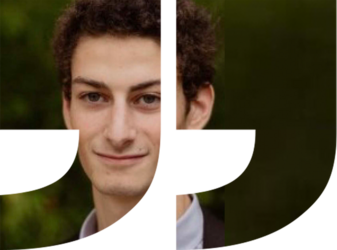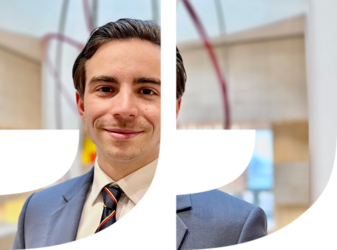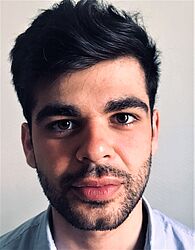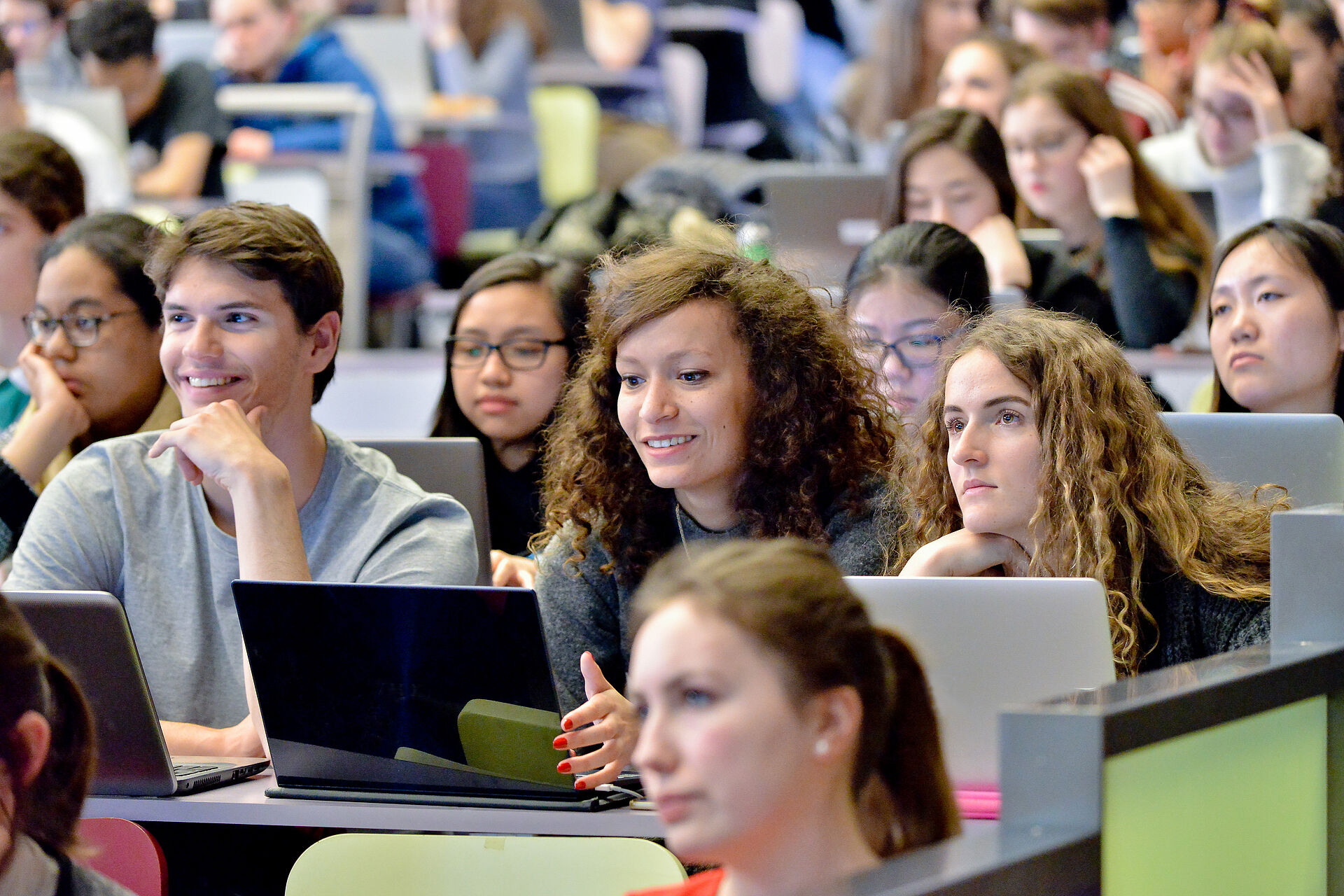Testimonials

The Master’s program in Quantitative Economics, which I completed in 2022–2023, was the fifth and final year of my academic journey. It followed one year of preparatory classes for top French business schools, two years of a Bachelor's degree in Economics and Finance, and a first-year Master's in International Affairs and Development at Université Paris Dauphine-PSL.
While my studies at Dauphine-PSL as a whole sparked my interest in economic analysis, the Master’s in Quantitative Economics truly confirmed my desire to pursue a research-oriented path. It introduced me to the rigors of academia, helped me develop economic reasoning, and provided training in essential econometric and quantitative tools needed to address contemporary economic issues.
The skills I gained enabled me to undertake an internship at the European Central Bank the following year, within the Directorate General Economics. They also strengthened my motivation to return to an academic environment by starting a CIFRE PhD in 2025, in collaboration with Université Paris Dauphine-PSL and BNP Paribas Real Estate.
Elias Krief - Promotion 2023
CIFRE PhD student
Your path :
Quantitative Economic Analysis Major Macro-Finance

I joined the Master’s Quantitative Economics of Paris Dauphine after graduating from a Bachelor’s in Economics and Financial Engineering from the same university. I obtained an Economic and Social Baccalaureate in Pontoise, France.
My experience in the Master Quantitative Economics has been fruitful in several aspects. First, studying in a top-notch university like Dauphine will give you access to lectures with some of the most renowned researchers in their respective fields. The efforts that Dauphine makes to provide its students with a multidisciplinary education will grant you a polyvalence that will be an asset in your early professional life but also for your personal development.
Moreover, the courses offered by the Master will enable you to master analytical and quantitative skills that is an advantage for any modern economist. The research orientation of the Master is also a clear asset for any student seeking a career in international institutions or in research centers. After graduating from the master in 2024, I received an analyst offer at the European Central Bank, in the Directorate General Market Operations.
There I contribute to the implementation of the European monetary policy in financial markets, with operational and policy perspectives. This position is subsequent to a traineeship completed in the same team as for the optional internship of the second year of the Master.
Louis MORILLON – Promotion 2024
Market Operations Analyst at the European Central Bank
Your path :
Quantitative Economic Analysis Major Macro-Finance

I am currently a research assistant or "pre-doctoral student" at the Center for Labor Economics and Demography at the "Ifo" Institute at the University of Munich in Germany. I was one of the first cohort to graduate with a Master’s degree in Quantitative Economics from Dauphine-PSL in 2021.
Before coming to Dauphine-PSL, I had done a Bachelor's degree in Economics and Management at the University of Bordeaux. I was able to study abroad for my entire third year at CEU San Pablo University in Madrid. The Master’s degree in Quantitative Economics taught me the tools I need in my current role.
More concretely, the 1st year of the Master’s degree helped deepen my understanding of microeconomics, macroeconomics, and econometrics. As the name suggests, the program had a highly quantitative focus on economic theories and models, which helped me develop my analytical and mathematical skills. In the 2nd year Master’s degree in Quantitative Economic Analysis, we discussed and presented a great many academic articles on economics, which helped deepen my understanding of research in the field. But most importantly, I learned a number of programming languages, including Stata, Python, and Matlab, which increased my ability to work with large databases.
I really appreciated the spirit of the cohort, which was both French and international. It was a really great experience overall.
Leander ANDRES - Promotion 2021
PhD student, IFO Munich
Your path :
Quantitative Economic Analysis Major Social and Public Policies

Having taken preparatory classes for the Grandes Écoles and gone to Business School, the 2nd year Master’s in Quantitative Economic Analysis gave me a solid foundation in econometrics and statistics and introduced me to the world of economics research.
Thanks to the faculty’s continued commitment to the program, the quality of the teaching is excellent. It is designed to be both interactive and relevant to current theoretical trends. This means that curricular content is constantly being put into the perspective of contemporary issues.
I developed a taste for academic research during the program, which led me to join a governmental economic bureau where I could use what I’d learned during my Master’s to serve public policy.
Nicolas Baaklini - Promotion 2021
Assistant Head Clerk, Treasury Head Office
Your path :
Quantitative Economic Analysis Major Macro-Finance

After completing a Bachelor's degree in Applied Economics at Dauphine-PSL, I pursued the QE Master's program because I wanted to do research in economics and also learn advanced machine learning techniques. This Master's program has been extremely enriching, both academically—thanks to the rigor and depth of the courses—and personally, through the diversity of nationalities among the students.
The courses allowed me to master many essential research tools and to build a strong foundation in economic science. More broadly, Dauphine and the QE Master's taught me to develop critical thinking, to reason using modern tools, and to produce high-quality work.
The QE Master's created an extremely solid knowledge base, which now enables me to pursue a PhD in economics under the best possible conditions.
Mathilde Badufle - Promotion 2024
PhD student in Economics at the European University Institute
Your path :
Quantitative Economic Analysis Major Macro-Finance
